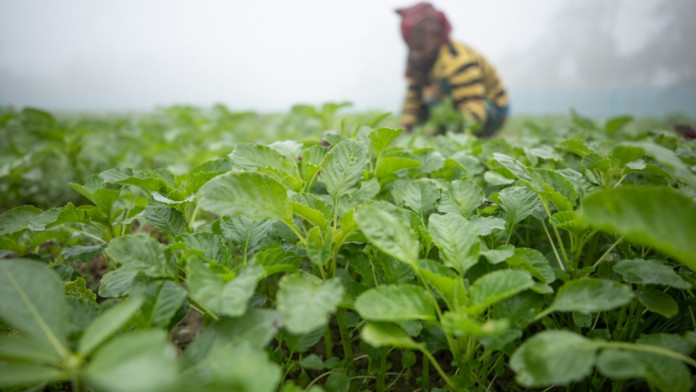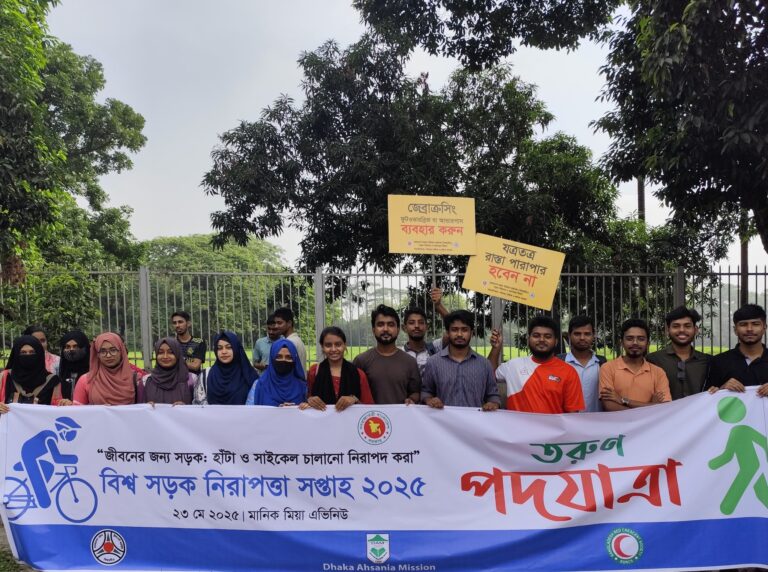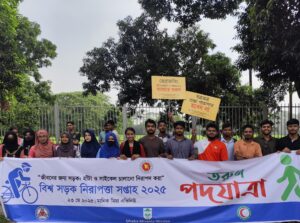In recent years, organic farming has gained significant attention across the globe due to growing awareness of food safety, environmental sustainability, and health concerns. Bangladesh, an agrarian country with fertile land and favourable climatic conditions, has substantial potential to promote and adopt organic farming practices. Despite its many challenges, organic agriculture could serve as a sustainable solution to many of the country’s agricultural and environmental problems.
This article explores the current status, benefits, challenges, and prospects of organic farming in Bangladesh, and highlights why a shift toward organic agriculture could be an essential step for sustainable development.
What is Organic Farming?
Organic farming is a method of agricultural production that avoids the use of synthetic chemicals such as pesticides, herbicides, and fertilisers. It relies on ecological processes, biodiversity, and natural cycles adapted to local conditions. Organic farming promotes soil fertility, conserves biodiversity, and reduces pollution. It includes techniques such as composting, crop rotation, biological pest control, and the use of organic manure.
Current Scenario of Agriculture in Bangladesh
Agriculture remains the backbone of the Bangladeshi economy, contributing around 13% to GDP and employing nearly 40% of the labour force. However, conventional farming in Bangladesh heavily depends on chemical inputs. Overuse of pesticides and fertilisers has led to soil degradation, declining crop yields, water pollution, and serious health risks for both farmers and consumers.
According to the Department of Agricultural Extension (DAE), pesticide use in Bangladesh has increased significantly over the past decade. The misuse of chemicals not only contaminates food but also harms beneficial insects, birds, and aquatic life. In this context, organic farming presents a cleaner, safer, and more sustainable alternative.
Potential for Organic Farming in Bangladesh
Several factors make Bangladesh suitable for organic agriculture:
Fertile Land: The alluvial plains of Bangladesh are naturally fertile and ideal for organic crop cultivation.
Traditional Practices: Many farmers in rural areas still follow traditional farming techniques that are similar to organic methods, using compost, cow dung, and crop rotation.
Labour Availability: Organic farming is labour-intensive, and Bangladesh has an abundant rural workforce.
High Demand: With rising health awareness, there is a growing demand for organic products in urban centres like Dhaka, Chattogram, and Sylhet.
Export Potential: Organic products fetch premium prices in international markets. If Bangladesh can meet global organic certification standards, it could earn significant foreign exchange through exports.
Benefits of Organic Farming
Environmental Benefits: Organic farming helps maintain soil health, reduces water contamination, preserves biodiversity, and lowers greenhouse gas emissions.
Health Benefits: Organic food is free from harmful chemical residues and is considered safer for human consumption. Farmers are also less exposed to toxic chemicals.
Economic Opportunities: Organic farming can open up new markets, especially export-oriented sectors. Farmers can earn better prices due to the premium value of organic produce.
Soil Fertility and Productivity: Organic matter improves soil structure, enhances microbial activity, and leads to sustainable productivity over the long term.
Climate Resilience: Organic farming methods make crops more resilient to climate change impacts like droughts, floods, and pest outbreaks.
Challenges of Organic Farming in Bangladesh
Despite its potential, organic farming faces several barriers in Bangladesh:
Lack of Awareness: Most farmers are unaware of organic methods and their long-term benefits.
Transition Period: Shifting from conventional to organic farming requires time, during which yields may decline and farmers may face financial stress.
Certification and Standards: Organic certification is complex and expensive. Bangladesh lacks a comprehensive national certification system for organic produce.
Market Access: Although demand exists, the organic supply chain is underdeveloped. Farmers often struggle to find buyers and fetch fair prices.
Input Availability: Organic seeds, compost, and biopesticides are not readily available or accessible to farmers in rural areas.
Policy Support: There is limited government support for organic farming in terms of subsidies, training, or infrastructure.
Government and NGO Initiatives
Some efforts have been made by the government and non-governmental organisations to promote organic farming:
>The Ministry of Agriculture has included organic farming in its policy documents and extension services.
>NGOs such as UBINIG, Shisuk, and BARCIK have been promoting organic farming at the grassroots level.
>Organic fairs and farmers’ markets have been organised in urban areas to connect producers with consumers.
Some private entrepreneurs and cooperatives have started organic farms and are marketing organic vegetables, fruits, and spices.
Successful Examples in Bangladesh
Nayakrishi Andolon: This community-based initiative in Tangail and other districts encourages farmers to follow biodiversity-based ecological agriculture. Thousands of farmers are now engaged in organic farming without synthetic inputs.
Organic Tea in Panchagarh: Some tea gardens in the northern districts have started producing organic tea for export markets.
Peri-urban Organic Farms: Around Dhaka and other cities, several organic farms have emerged to meet the growing demand for chemical-free vegetables.
Way Forward: Strategies for Scaling Up Organic Farming
Policy Framework: The government should develop a comprehensive national policy on organic agriculture, including certification, subsidies, training, and marketing support.
Farmer Training: Massive awareness campaigns and hands-on training programmes should be conducted to educate farmers about organic methods and practices.
Research and Development: Agricultural universities and research institutes should focus on organic farming technologies suited to local conditions.
Subsidy and Incentives: Like conventional farming, organic farmers should receive subsidies for inputs, crop insurance, and access to credit.
Certification System: A national certification body should be established to provide affordable and credible organic certification.
Market Development: Promote farmers’ markets, organic product labels, and direct marketing channels to build trust among consumers.
Public-Private Partnership: Collaborations between government, NGOs, private sector, and international donors can help build an ecosystem for organic agriculture.
School and Community Programmes: Integrating organic farming in school curricula and encouraging community gardens can build awareness from a young age.
Organic farming presents a timely and necessary alternative to chemical-intensive agriculture in Bangladesh. While the challenges are real, the benefits of health, sustainability, and economic viability are far greater. With coordinated efforts from all stakeholders — government, NGOs, farmers, and consumers — Bangladesh can harness the full potential of organic agriculture. This will not only ensure safe food and a healthier environment but also contribute to achieving the Sustainable Development Goals (SDGs) and a greener future for generations to come.








